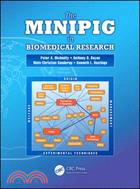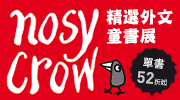The Minipig in Biomedical Research
商品資訊
ISBN13:9781439811184
出版社:CRC Press UK
作者:Edited by Peter A. McAnulty; Anthony D. Dayan; Niels-Christian Ganderup and Kenneth L. Hastings
出版日:2011/12/02
裝訂/頁數:精裝/662頁
規格:29.2cm*22.2cm*4.4cm (高/寬/厚)
版次:1
定價
:NT$ 12350 元優惠價
:
90 折 11115 元
若需訂購本書,請電洽客服 02-25006600[分機130、131]。
商品簡介
作者簡介
目次
商品簡介
The Minipig in Biomedical Research is a comprehensive resource for research scientists on the potential and use of the minipig in basic and applied biomedical research, and the development of drugs and chemicals. Written by acknowledged experts in the field, and drawing on the authors’ global contacts and experience with regulatory authorities and the pharmaceutical and other industries, this accessible manual ranges widely over the biological, scientific, and practical uses of the minipig in the laboratory. Its coverage extends from the minipig’s origins, anatomy, genetics, immunology, and physiology to its welfare, health, and husbandry; practical dosing and examination procedures; surgical techniques; and all areas of toxicity testing and the uses of the minipig as a disease model. Regulatory aspects of its use are considered.
The reader will find an extensive amount of theoretical and practical information in the pharmacology; ADME and toxicology chapters which will help scientists and managers when deciding which species to use in basic research; drug discovery and pharmacology; and toxicology studies of chemicals, biotechnology products and devices. The book discusses regulatory uses of minipigs in the evaluation of human and veterinary pharmaceuticals, medical devices, and other classes of xenobiotics. It describes features of normal health, normal laboratory values, and common diseases. It also carefully elucidates ethical and legal considerations in their supply, housing, and transport. The result is an all-inclusive and up to date manual about the experimental uses of the minipig that describes ‘How to’ and ‘Why’ and ’What to expect in the normal’, combining enthusiasm and experience with critical assessment of its values and potential problems.
The reader will find an extensive amount of theoretical and practical information in the pharmacology; ADME and toxicology chapters which will help scientists and managers when deciding which species to use in basic research; drug discovery and pharmacology; and toxicology studies of chemicals, biotechnology products and devices. The book discusses regulatory uses of minipigs in the evaluation of human and veterinary pharmaceuticals, medical devices, and other classes of xenobiotics. It describes features of normal health, normal laboratory values, and common diseases. It also carefully elucidates ethical and legal considerations in their supply, housing, and transport. The result is an all-inclusive and up to date manual about the experimental uses of the minipig that describes ‘How to’ and ‘Why’ and ’What to expect in the normal’, combining enthusiasm and experience with critical assessment of its values and potential problems.
作者簡介
Anthony Dayan worked as a pathologist before joining the pharmaceutical industry as a toxicologist and subsequently returning to head a university department of toxicology in London. He has been a member of official and industrial advisory committees on animal experimentation and the safety of medicines, foods and pesticides in the UK and internationally. He has been a consultant to many companies on drug and chemical safety programmes.
Kenneth Hastings was trained at the University of North Carolina at Chapel Hill and the Chemical Industry Institute of Toxicology. After Peace Corps service with the Ministry of Health, Republic of Fiji, he was a Research Associate in the Department of Anesthesiology, College of Medicine, University of Arizona. He then joined the US Food and Drug Administration, Center for Drug Evaluation and Research, Division of Anti-viral Drug Products, where he reviewed many of the early drugs for treatment of HIV/AIDS and related diseases. He served as supervisory toxicologist in the Division of Special Pathogen and Immunologic Drug Products, where he was part of review teams for tropical disease and transplant drugs. He concluded his career at FDA as an Associate Director in the Office of New Drugs. He represented the Agency on many regulatory initiatives, such as the International Conference on Harmonisation (ICH). After government service, he joined Sanofi-Aventis as Associate Vice-President for Regulatory Policy. He has served as President of the American College of Toxicology, the American Board of Toxicology, and the Immunotoxicology Specialty Section of the Society of Toxicology.
Peter McAnulty was trained at the University of London, and worked on various biochemical studies at the Institute of Child Health, part of London University. He then moved to Cambridge University and the Strangeways Research Laboratory, and began biochemistry and immunology research for the WHO. Dr. McAnulty began his CRO career at Life Science Research, where he became a toxicologist, and specialised in reproductive studies. When LSR became Pharmaco LSR, he became the Director of Pharmaceutcal Toxicology, and after that he was Principal Toxicologist at HLS. After that, Dr. McAnulty moved to Denmark and became the Scientific Director of Scantox. He has been a member of the Board of Directors of the American Board of Toxicology, and has been their President (2002-2003). He joined Ferring Pharmaceuticals in 2001, in the position of Executive Director, Nonclinical Development. In 2010 Dr. McAnulty became an Independent Nonclinical Consultant.
Niels-Christian Ganderup trained first in experimental biology and has had special experience of toxicology and ecotoxicology. Since 2005, he has been generally concerned with best use of the minipig in the biomedical sciences. His principal role has been active engagement world-wide with academic, pharmaceutical and other industrial research organisations and CROs in comparing the value of the minipig and other species in research and testing programmes in pharmacology and toxicology.
His broad interests cover the ‘Can I …?’, ‘How can I …?’ and ‘Who can show me how to …?’ questions. This has led him to facilitate cross-company and inter-organisation research consortia to extend scientific knowledge about the minipig and its uses in biomedical research. To further increase collaboration and to improve knowledge of techniques Niels-Christian Ganderup founded the Minipig Research Forum, a non-profit organisation, which organises annual scientific conferences in Europe and North America about all aspects of the use of minipigs in biomedical research. He is a regular speaker at conferences and is often consulted by universities, CROs and industrial groups about many aspects of the use of the minipig ranging from health and husbandry to training in experimental techniques and the development of new procedures.
Kenneth Hastings was trained at the University of North Carolina at Chapel Hill and the Chemical Industry Institute of Toxicology. After Peace Corps service with the Ministry of Health, Republic of Fiji, he was a Research Associate in the Department of Anesthesiology, College of Medicine, University of Arizona. He then joined the US Food and Drug Administration, Center for Drug Evaluation and Research, Division of Anti-viral Drug Products, where he reviewed many of the early drugs for treatment of HIV/AIDS and related diseases. He served as supervisory toxicologist in the Division of Special Pathogen and Immunologic Drug Products, where he was part of review teams for tropical disease and transplant drugs. He concluded his career at FDA as an Associate Director in the Office of New Drugs. He represented the Agency on many regulatory initiatives, such as the International Conference on Harmonisation (ICH). After government service, he joined Sanofi-Aventis as Associate Vice-President for Regulatory Policy. He has served as President of the American College of Toxicology, the American Board of Toxicology, and the Immunotoxicology Specialty Section of the Society of Toxicology.
Peter McAnulty was trained at the University of London, and worked on various biochemical studies at the Institute of Child Health, part of London University. He then moved to Cambridge University and the Strangeways Research Laboratory, and began biochemistry and immunology research for the WHO. Dr. McAnulty began his CRO career at Life Science Research, where he became a toxicologist, and specialised in reproductive studies. When LSR became Pharmaco LSR, he became the Director of Pharmaceutcal Toxicology, and after that he was Principal Toxicologist at HLS. After that, Dr. McAnulty moved to Denmark and became the Scientific Director of Scantox. He has been a member of the Board of Directors of the American Board of Toxicology, and has been their President (2002-2003). He joined Ferring Pharmaceuticals in 2001, in the position of Executive Director, Nonclinical Development. In 2010 Dr. McAnulty became an Independent Nonclinical Consultant.
Niels-Christian Ganderup trained first in experimental biology and has had special experience of toxicology and ecotoxicology. Since 2005, he has been generally concerned with best use of the minipig in the biomedical sciences. His principal role has been active engagement world-wide with academic, pharmaceutical and other industrial research organisations and CROs in comparing the value of the minipig and other species in research and testing programmes in pharmacology and toxicology.
His broad interests cover the ‘Can I …?’, ‘How can I …?’ and ‘Who can show me how to …?’ questions. This has led him to facilitate cross-company and inter-organisation research consortia to extend scientific knowledge about the minipig and its uses in biomedical research. To further increase collaboration and to improve knowledge of techniques Niels-Christian Ganderup founded the Minipig Research Forum, a non-profit organisation, which organises annual scientific conferences in Europe and North America about all aspects of the use of minipigs in biomedical research. He is a regular speaker at conferences and is often consulted by universities, CROs and industrial groups about many aspects of the use of the minipig ranging from health and husbandry to training in experimental techniques and the development of new procedures.
目次
Origin and Management of the MinipigHistory and Development of Miniature, Micro- and MinipigsFriederike Köhn (Germany)Husbandry and ManagementRoberta Scipioni Ball (USA)Diseases of MinipigsNanna Grand (Denmark)International Transportation of MinipigsFinn Raaschou-Nielsen (Denmark)Welfare and Experimental Usage of the MinipigEthical Issues in the Use of Minipigs in Animal ResearchDavid Morton (UK)Animal Welfare IssuesM. Michael Swindle (USA), Alison C. Smith (USA), and Kathy E. Laber (USA)Stress in ExperimentsLarry Brown (USA) and L. Peter Gade (Denmark)Dosing MethodsPeter Clausing (Germany)In-life Clinical ObservationsDavid Cameron (UK)Pharmacology and ADME Studies in the MinipigMinipigs in Absorption, Distribution, Metabolism and Excretion (ADME) Studies Cornelia Preusse (Germany) and Mette T. Skaanild (Denmark)Safety PharmacologyStephane Milano (France)Safety Assessment in the Minipig – Principal Body SystemsDermal Toxicity Studies: Skin Architecture, Metabolism, Penetration and Toxicological and Pharmacological MethodsAndy Makin (Denmark), Jens Thing Mortensen (Denmark), and Bill Brock (USA)Gastrointestinal TractChris Van Ginneken (Belgium)Heart and CardiotoxicityJames R. Turk (USA)Central and Peripheral Nervous SystemsAlan D Rasmussen (Denmark) and Karen M. Wegener (Denmark)The KidneyPeter A. McAnulty (Denmark)Reproductive System including Studies in Juvenile MinipigsPaul Barrow (France), Edward Marsden (France), and Peter A. McAnulty (Denmark)The Endocrine SystemClaudia Stark (Germany) and Jakob Walter (Germany)Skeletal System Hideki Tsutsumi (Japan)Ocular Examination and Background ObservationsHelmut Ehall (UK)Spontaneous/Background Pathology of the Göttingen MinipigMikala Skydsgaard (Denmark) and Zuhal Dincer (UK)Genetics and ImmunologyA Comparative Assessment of the Pig, Mouse, and Human Genomes: Structural and Functional Analysis of Genes Involved in Immunity and InflammationHarry Dawson (USA) The Immune System of Pigs: Structure and FunctionPatrick Haley (USA)Allotransplantation in Miniature SwineJohn S. Hanekamp (USA), Raimon Duran-Struuck (USA), and David H. Sachs (USA)XenotransplantationHenk-Jan Schuurman (USA), Melanie L. Graham (USA), Thomas Spizzo (USA), and Clive Patience (UK).Porcine endogenous retroviruses (PERVs) in xenotransplantation - A review of the importance of PERVs in porcine studies, with particular emphasis on the minipigLinda Scobie (UK) and Olga Garkavenko (New Zealand)Immunotoxicity Studies in MinipigsAndré Penninks (The Netherlands) and Geertje J.D. van Mierlo (The Netherlands)Disease ModelsCreation and conservation of genetically modified pigs: applications to genetic disease model and xenotransplantationHiroshi Nagashima (Japan), Hitomi Matsunari (Japan), and Kazuhiro Umeyama (Japan) Stem Cell Research and MinipigsVanessa J Hall (Denmark), Stoyan G Petkov (Denmark), and Poul Hyttel (Denmark)Minipig Models of Diabetes MellitusDwight A. Bellinger (USA), Elisabeth P. Merricks (USA), and Timothy C. Nichols (USA)Diet-induced AtherosclerosisJames R. Turk (USA) and Maurice H. Laughlin (USA)Haemorrhage and Resuscitation Models Using Miniature SwineJohn Burns (USA) and Charles Wade (USA)Oral Biology and Dental ModelsSue Herring (USA) , Yiming Li (USA), Yi Liu (USA), Professor Zi Jun Liu (USA), Tracy Popowics (USA), Katherine Rafferty (USA), and Songlin Wang (China)Osteoporosis Model in MinipigsHideki Tsutsumi (Japan), Satoshi Ikeda (Japan) Toshitaka Nakamura (Japan)Wound Healing ModelsPeter Glerup (Denmark)The Minipig in Chemical, Biological and Radiological Warfare ResearchStanley S. Hulet (USA), Maria Moroni (USA), Mark H Whitnall (USA), and Robert J Mioduszewski (USA)The Minipig and Pig in Medical Device ResearchShayne C. Gad (USA)Regulatory Perspective and Use of the Minipig in Developing Marketed ProductsRegulatory Aspects – Pharmaceuticals, Medical Devices and Food AdditivesAbigail Jacobs (USA) and Jan-Willem van der Laan (The Netherlands)Adverse Responses to Drugs in Man: a critical comparison of reported toxicological findings in minipigs and humansNiels-Christian Ganderup (Denmark)Regulatory Acceptance of the Minipig in Non-Pharmaceutical Industry and ResearchWarren Harvey (UK)New Horizons and perspectivesFuture Prospects: Possibilities and PerspectivesAnthony D. Dayan (UK)
主題書展
更多
主題書展
更多書展購物須知
外文書商品之書封,為出版社提供之樣本。實際出貨商品,以出版社所提供之現有版本為主。部份書籍,因出版社供應狀況特殊,匯率將依實際狀況做調整。
無庫存之商品,在您完成訂單程序之後,將以空運的方式為你下單調貨。為了縮短等待的時間,建議您將外文書與其他商品分開下單,以獲得最快的取貨速度,平均調貨時間為1~2個月。
為了保護您的權益,「三民網路書店」提供會員七日商品鑑賞期(收到商品為起始日)。
若要辦理退貨,請在商品鑑賞期內寄回,且商品必須是全新狀態與完整包裝(商品、附件、發票、隨貨贈品等)否則恕不接受退貨。













